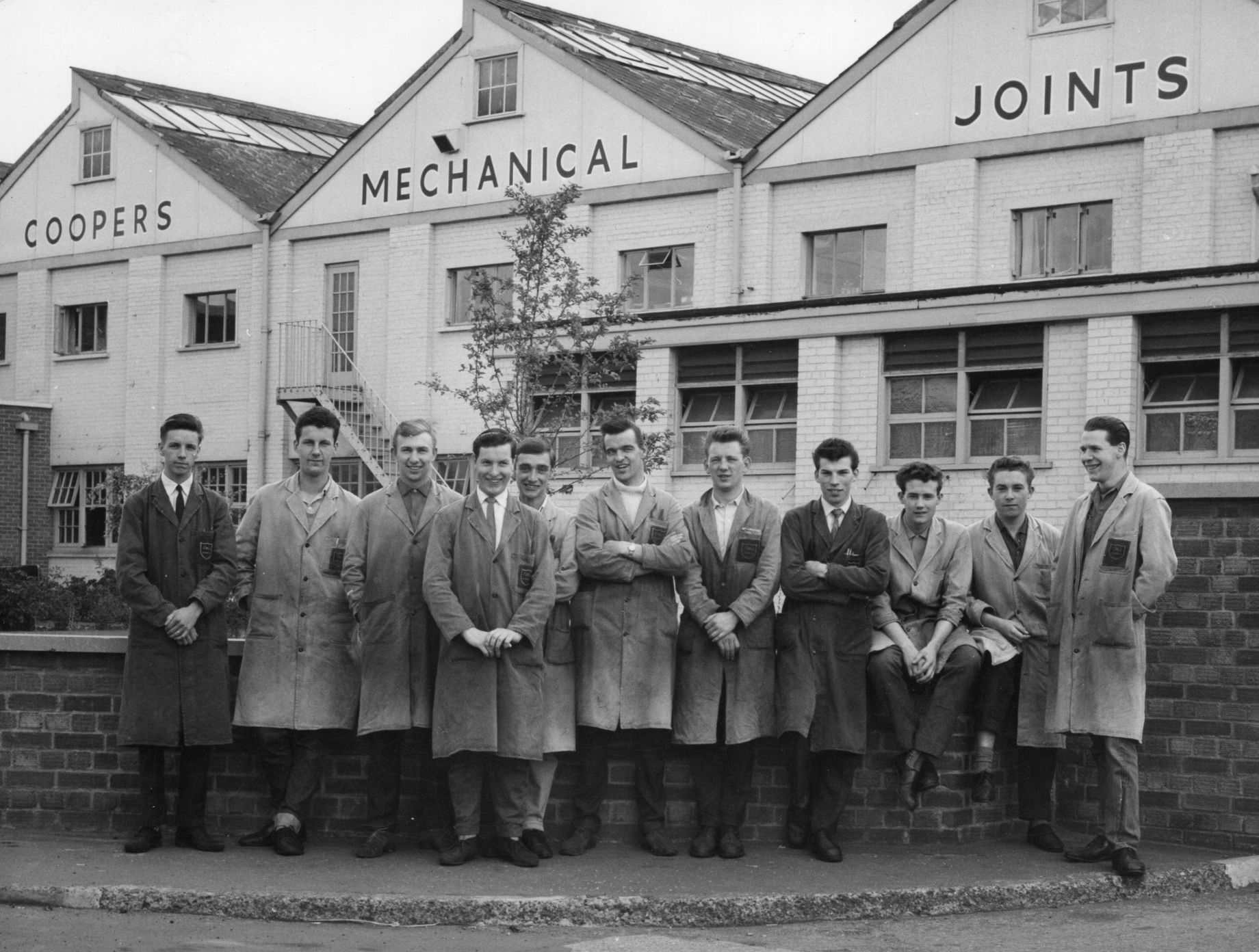Cooper’s Mechanical Joints / J Payen / British Technical Cork
The Coopers Mechanical Joints company made gaskets and seals for some of the very first motor vehicles ever produced. It produced handmade gaskets for the Sunbeam Motor Car Company and also supplied gaskets for the Model T Ford, the first mass produced, affordable car.
The company first started, back in the early years of the twentieth century, when Dr PG Griffiths invented a water steriliser. He began to market this product through a London firm, Edwin Cooper & Co which also made gaskets.
The business prospered, changed its name to Coopers Mechanical Joints and moved from Kennington in London to the Slough Trading Estate in 1932. The move coincided with the acquisition of British Technical Cork and their Slough works. British Technical Cork were prominent manufacturers of composite cork material which was supplied in sheet form or cut for use as gaskets, oil seals, anti-vibration packings, insulation, domestic articles etc., to a wide variety of industries.
Coopers Mechanical Joints made gaskets (also known as “joints”) primarily to seal the engines of cars, heavy transport vehicles, and agricultural tractors. They were made from compressible materials and designed to fit between two machined metal surfaces to make a gas, water and oil tight seal. Special materials were developed and made in house, to improve the life and effectiveness of the gaskets, improving vehicle reliability.
Dr Griffith acquired a French gasket company, called J Payen Limited. which had been manufacturing gaskets in England. It was decided that the replacement gasket business, supplying garages with spare parts should be handled by this company, while Coopers Mechanical Joints concentrated on gaskets for the car manufacturers to use in new vehicles.
In 1935 Coopers Mechanical Joints Limited, J. Payen Limited and British Technical Cork Company Limited were combined in one group called Engineering Components Limited.
The Slough factory was one of the largest of its kind in the world devoted to the manufacture of seals and gaskets. The business was self-contained, in that it manufactured its own steel tools which were used to stamp out the gasket outline. The Tool Room at Slough was one of the most modern in the country, with a highly trained and skilled workforce, devoted to the manufacture of press tools.
During the 1914-18 War, the Company were able to produce a large number of parts that had been previously imported, but during the Second World War 1939-45 it was able to make a very important contribution to victory, under the direction of the Ministry of Aircraft Production. It was able to produce not only all the gaskets required by the Armed Forces, but also substantial quantities of parts used in the manufacture of aircraft, ships, tanks, guns, shells, bombs, etc.
By 1948 more than 1,200 people were working in the Slough plant and the total rose to 2,000 at its peak. The Company had good working conditions and many amenities, such as canteen, medical services and sports facilities.
In 1952 a new factory was built at Edinburgh Avenue, Slough, and the offices and stores of J. Payen Ltd moved in. In the same year, Engineering Components acquired the Bradford firm of Wood Bros., makers of asbestos goods, compressed asbestos and paper gaskets and industrial gaskets. Part of the Slough business which had for several years produced industrial gaskets, was transferred to Wood Bros.
In 1966, a merger was arranged with the asbestos giants, Turner and Newall Limited of Manchester, who had provided the company with asbestos materials for many years. The company had its own engine testing facility; research and materials laboratories; and prototyping departments on the Slough site. In the early 90’s it introduced “Lean Manufacturing” techniques to improve product quality and delivery times and to reduce waste. The site was unionised, with good industrial relations and an increasingly diverse workforce.
In 1998, Turner and Newall was acquired by an American corporation, Federal Mogul based in Southfield, Michigan. The company that was then known as Coopers Payen Ltd was taken over to become part of the group. Production at Slough finally came to an end in 2007.

